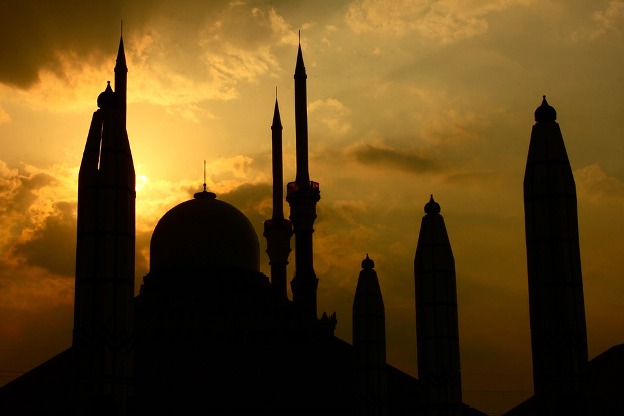
There are roughly 65 million refugees in the world.
I left Iran, my country of birth, in 1978 and joined the many millions who no longer had an official nation state to call theirs.
One of the most devastating experiences the psyche can undergo is to lose a home, uproot from a prior stable life, and unexpectedly shift location away from family, friends, and familiar culture and language. Indeed, the United Nations Human Rights Commission reports that a refugee’s difficult circumstances can “lead to demoralisation and hopelessness, and may be related to profound and persistent existential concerns of safety, trust, coherence of identity, social role and society.”
I learned that to overcome feelings of loss, shame, and ostracism that come with being an outsider alone are just the first steps. But on this journey, incredible insights and gifts can come to anyone who can overcome the traumatic loss of “home.” I gained a cultural connection with three different continents as a result of my own refugee experience, and much more.
Becoming a refugee can have a shattering effect on countless lives. In an unstable Middle East, the number of displaced persons grows and has become a top political issue in Europe and the United States. Lack of meaningful engagement with people from such a distant part of the world makes the cultural gap wider.
But there is wisdom we can turn to about the refugee experience, however heartbreaking in its initial impact, that can be an important guide for all of us. Knowing a person’s “universal” place in the world while also establishing fresh bonds of friendship are the kinds of gifts—not often associated with the refugee dilemma—that all can gain insight from.
Here is some wisdom from Rumi, a 13th century poet who was a refugee at 12 years of age, which has inspired and stayed with me as important teachings.
1. “Not Christian or Jew or Muslim, not Hindu, Buddhist, Sufi, or Zen. Not any religion or cultural system. I am not from the East or the West.”
At its core, all mysticism comes back to the questions, “What am I?” and “What is life about?” Rumi makes these statements not to disrespect our conventional sources of social identity, but to ask what is at their foundation prior to being given a label.
These are comforting questions for those who may feel lost, distanced, or life-shaken because of their social identities. Many times, Rumi offers invitations through his texts to “Come Again,” “Baza,” or “Biya.” To me, he is inviting us back in to the heart of all identities to comfort us with the answer, “one call to and know, first, last, outer, inner, only that breath breathing human being.”
2. “With friends of the heart you fly with your wings. Without them, you are merely a single fallen feather.”
We are in this together. Being open to quality human contact with friends, even unlikely ones, gives hope and often happens when displacement is forced. It is through the kindness of friends and support from those who cared about us that my family survived our darkest period through the 1980s. Being a refugee taught me the huge importance of how people can bond together after something negative happens.
Genuine friendship is more far reaching than any flag or ethnic association.
3. “I am like the candle: burning only makes me brighter.”
Another similar quote that comes from a Zen master, Ann Hisle, is “My house burned down, and now I can see the stars.” Sometimes, a clarity comes from being unattached to those material items that block our vision—and it can instead serve as fuel for the soul’s growth.
Rumi’s best friend, Shams, was a vagabond, a wandering monk with no home of his own—a refugee by choice, you might say. He was surprisingly wiser and more learned than most educated men who Rumi knew. Rumi, on the other hand, was a man of status and achievement, who owned many possessions when they met. There was something about Shams’ willingness to let go of it all in any given moment that inspired Rumi’s own evolution. It can remind us that the soul is patiently waiting for us to clear the path so we can hear its message.
4. “Out beyond the ideas of right and wrong, there is a field; I will meet you there.”
This one always stays with me because of its universality. It’s a sad fact that most people have judgments without any direct experience of the people they judge. What is more is the false notion that any space given to our common human bonds will diminish national pride. These judgments come from mental constructs that remove themselves from a perception that gives credit to a person’s common human journey.
We are more alike than different.
5. “Anything you lose comes round in another form.”
A loss is a clean slate for good or bad. It creates space and opens someone to new opportunities. There is a big part of this quote that has everything to do with saying yes to life and reframing loss from “I am defeated” to “I persevere.” Life can be a cycle of loss and gain and there is a way to get beyond this through acceptance.
I am not wishing loss on anyone, nor am I saying that grieving is bad. When the grief is met and accepted as a visiting guest, it can open a door to a hidden treasure that may only have come from this loss. For example, it was only when Rumi lost his beloved friend, Shams, that his poetic mastery came into being and gave form to 70,000 verses of inspiring poetry, which have made him the world’s most revered Persian-speaking literary master.
Author: Shervin Boloorian
Image: Author’s Own; PXHere
Editor: Catherine Monkman
Copy Editor: Nicole Cameron
Social Editor: Yoli Ramazzina
 Share on bsky
Share on bsky



Read 0 comments and reply